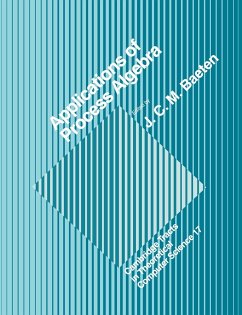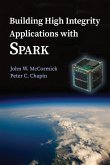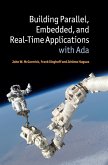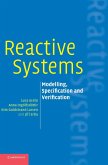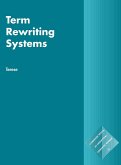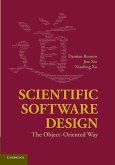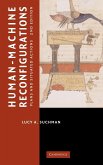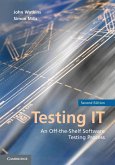This book gives applications of the theory of process algebra. or Algebra of Comunicating Processes (ACS).
This book gives applications of the theory of process algebra, or Algebra of Communicating Processes (ACP), that is the study of concurrent or communicating processes studied using an algebraic framework. The approach is axiomatic; the authors consider structures that are some set of mostly equational axioms, which are equipped with several operators. Thus the term 'algebra' is used in the model-theoretic sense. The axiomatic approach enables one to organize the field of process theories. The theory is applied systematically to a number of situations, including systolic algorithms, semantics of an object-oriented language, and protocols. It will be welcomed by computer scientists working in parallel programming.
Table of content:
1. An introduction to process algebra J. A. Bergstra and J. W. Klop; 2. Two simple protocols F. W. Vaandrager; 3. Proving mutual exclusion with process algebra E. R. Nieuwland; 4. Process algebra as a tool for the specification and verification of CIM-architectures S. Maauw; 5. A process creation mechanism in process algebra J. A. Bergstra; 6. Correctness proofs for systolic algorithms: palindromes and sorting L. Kossen and W. P. Weijland; 7. Verification of an algorithm for log-time sorting by square comparison J. C. Mulder and W. P. Weijland; 8. On the Amoeba protocol J. C. Mulder; 9. Process algebra semantics of Popl F. W. Vaandrager; 10. Some observations of redundancy in a context F. W. Vaandrager; 11. A modular approach to protocol verification using process algebra C. P. J. Koymans and J. C. Mulder.
Hinweis: Dieser Artikel kann nur an eine deutsche Lieferadresse ausgeliefert werden.
This book gives applications of the theory of process algebra, or Algebra of Communicating Processes (ACP), that is the study of concurrent or communicating processes studied using an algebraic framework. The approach is axiomatic; the authors consider structures that are some set of mostly equational axioms, which are equipped with several operators. Thus the term 'algebra' is used in the model-theoretic sense. The axiomatic approach enables one to organize the field of process theories. The theory is applied systematically to a number of situations, including systolic algorithms, semantics of an object-oriented language, and protocols. It will be welcomed by computer scientists working in parallel programming.
Table of content:
1. An introduction to process algebra J. A. Bergstra and J. W. Klop; 2. Two simple protocols F. W. Vaandrager; 3. Proving mutual exclusion with process algebra E. R. Nieuwland; 4. Process algebra as a tool for the specification and verification of CIM-architectures S. Maauw; 5. A process creation mechanism in process algebra J. A. Bergstra; 6. Correctness proofs for systolic algorithms: palindromes and sorting L. Kossen and W. P. Weijland; 7. Verification of an algorithm for log-time sorting by square comparison J. C. Mulder and W. P. Weijland; 8. On the Amoeba protocol J. C. Mulder; 9. Process algebra semantics of Popl F. W. Vaandrager; 10. Some observations of redundancy in a context F. W. Vaandrager; 11. A modular approach to protocol verification using process algebra C. P. J. Koymans and J. C. Mulder.
Hinweis: Dieser Artikel kann nur an eine deutsche Lieferadresse ausgeliefert werden.

